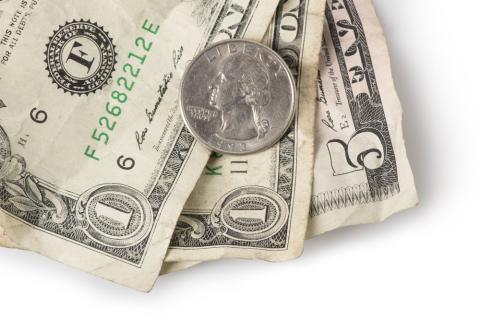I was in Seattle recently (great city, fabulous, everyone says so), and while there a very nice and gregarious person was telling us about how excited she was for the upcoming $15 minimum wage (it's currently $13).
I knew almost nothing about it other than brief headlines on the news, so I listened but didn't add much. But it was a good opportunity to then go do some research.
People are of course very politically committed to the outcome being one way or the other -- "I'm sure it's working great" or "I'm sure it's terrible" are probably common thoughts. But what if we approached this as something to be studied, where the truth is more important than the spin?
Presumably the goals of the $13+ minimum wage are something like the following:
- Increase wages for the poorest workers;
- Have no negative impact on employment (because unemployed people don't make any money and we want to help them, too); and
- For some (particularly of a Keynesian bend) grow the economy by increasing spending power -- a "bottom up" strategy.
So those might be some ways we can measure it.
Turns out this is hard because it's really really hard to isolate the impact of this from other stuff that's going on in the economy. That's why we have economists. And that's why... they don't always agree.
(Note: I am not an educated economist so the methodologies are usually a bit beyond my ability to validate. But these are all credible professors.)
Berkeley studied the food industry specifically, which has a lot of minimum wage. They found that there was a statistically significant increase in wages compared to control areas (that did not have a minimum wage increase) of anywhere between 5-15%.
Employment seemed to be closer to the control (except in limited service restaurants such as fast food), where it's lower than the controls.
NBER made a wider study of multiple industries, and used a bunch of different approaches to studying employment and wage.
They found that wages per worker (in all sectors previously paying below the minimum wage) went up 3%, but total hours worked in those sectors dropped 9%. The drop was absolute, even in a time of growing employment in other parts of the economy.
Some of the drop in employment was reducing hours; some was from putting off hiring and letting attrition take over, and some was from layoffs.
But what it meant was the average minimum wage worker, according to this study, was making $125 less per week.
Forbes highlights that the two studies disagreed.
I haven't found a good study on this. Anecdotal evidence suggests that restaurant prices in particular have increased as a direct consequence of the wage hike, but I haven't seen a statistical study (if you see one, let me know).
It's not clear whether this means people will eat out less, or whether they will have reduced spending power for other industries, which might be affected negatively and lose employment as a result. Or, the increased buying power of the low-wage workers will make up for it, or more than make up for it.
Ultimately these are correlations of certain subsets of data that have various statistical controls. One can always challenge the causal nature of the correlations -- to what extent did the minimum wage hike have an impact on total wages and employment?
If you're an economist of the Keynesian ilk, you're more likely to think that the minimum wage hike leads to greater spending power, which leads to more buying, which leads to more economic activity and employment -- so it's really a net positive.
If you're of the Hayek or Friedman ilk, you're more likely to believe that unskilled labor follows a supply-demand curve like goods. If you increase the price, demand will go down--some of the positions will no longer be profitable at the higher wage.
There would simply be less business in the industry -- just as if beef suddenly cost significantly more, it's likely fewer burgers would be sold.
Some take a middling approach, arguing that certain economic conditions and certain sectors (especially large businesses) make a minimum wage hike great -- others not so much.
Some of these folks argue that there are forces artificially suppressing some wages (such as lopsided bargaining power) and a minimum wage should bring them back into line.
Some people in this group might say that a small wage hike at a certain time is a good thing, where increasing the minimum wage to $200/hr might not work.
There are papers arguing both sides, both by economists more experienced than I am. I've heard some people say that there are more papers on one side or the other, but I have not been able to count them up. I don't know if counting them up would even matter.
An economist friend of mine said once that, "if you want to find someone that disagrees with me entirely, walk down the hall." Economics is a tricky thing and experts rarely find agreement.
Do you walk around touting that minimum wage increases are great, or terrible? Do you have a strong belief one way or another? Remember that whether they work (in accomplishing their state goals) is not a matter of opinion--merely one of fact. You're either right or you're wrong.
If economists can't collectively be certain about the impacts of minimum wage, how can we?
Photo Credit: icemanj / shutterstock.com
